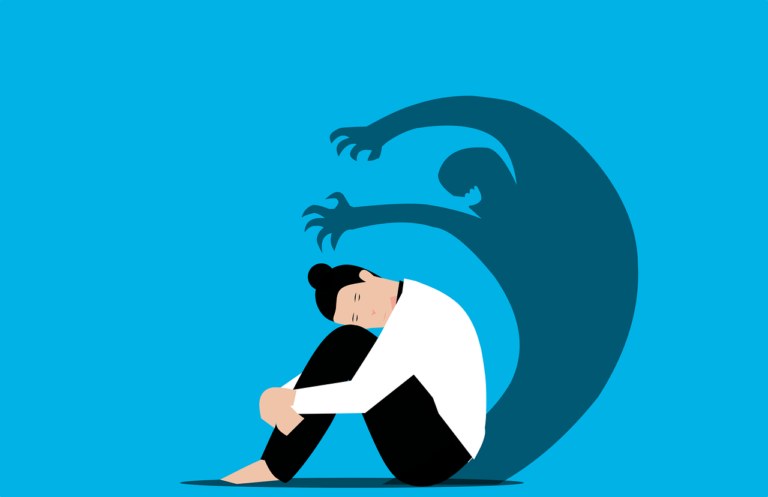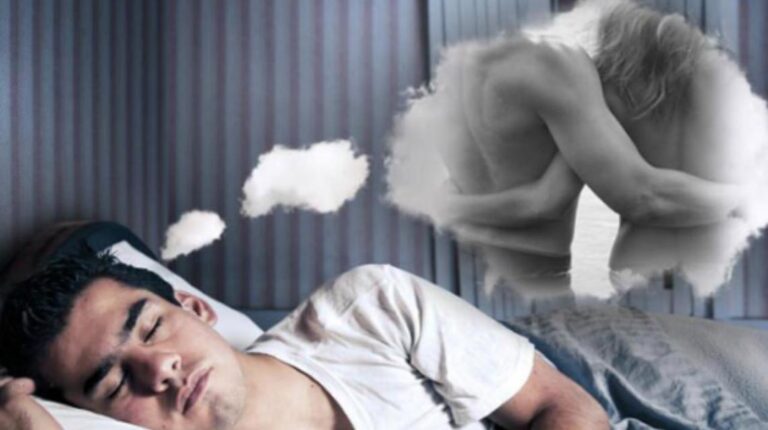How Technology Ruins Your Sleep and How to Fix It
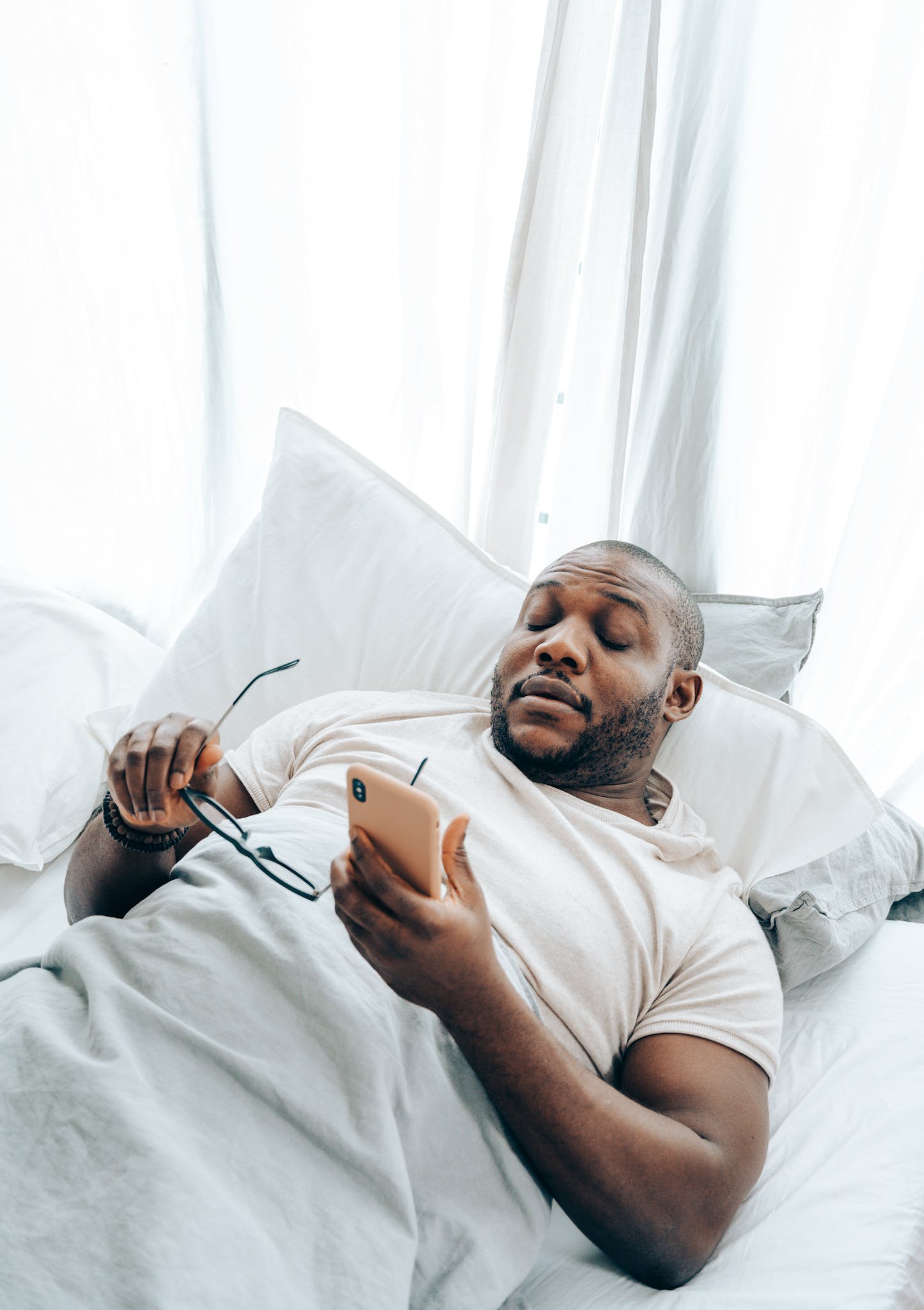
The Impact of Technology on Sleep Quality
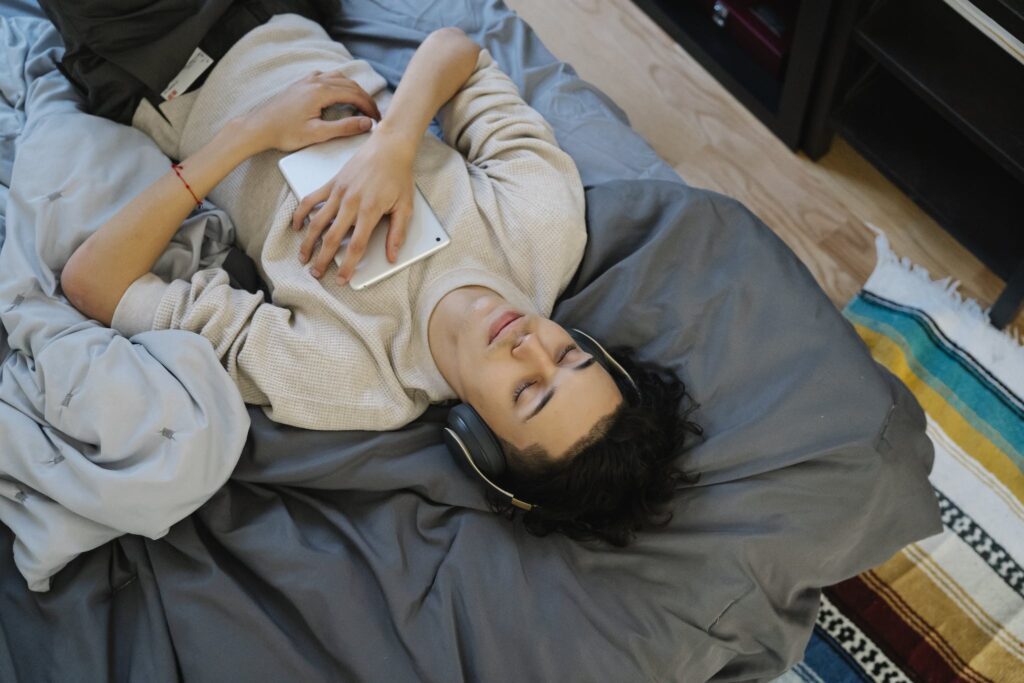
The impact of technology on sleep quality has become a pressing concern in our modern society. With the proliferation of electronic devices and the ever-increasing availability of online content, many individuals are finding it increasingly difficult to obtain a restful night’s sleep. Numerous studies have shown that the use of technology, particularly in the evening hours, can negatively affect both the duration and quality of sleep.
One of the primary culprits behind the disruption of sleep patterns is blue light emitted by electronic screens. The blue light spectrum, which is similar to natural sunlight, can suppress the release of melatonin, a hormone that regulates sleep-wake cycles. This can lead to difficulties in falling asleep and staying asleep throughout the night. Furthermore, the engaging nature of social media and online content can stimulate the brain, making it challenging to wind down and relax before bedtime. As a result, individuals may experience increased alertness, reduced sleep efficiency, and overall poorer sleep quality.
Understanding the Science Behind Sleep
Sleep is a fundamental aspect of human biology, essential for our physical and mental well-being. While we spend approximately one-third of our lives asleep, the science behind this often routine activity is far from simple. Sleep is a complex process regulated by various neurological, biochemical, and physiological mechanisms that work intricately together to maintain a healthy sleep-wake cycle.
At its core, sleep is regulated by two major processes: sleep homeostasis and the circadian rhythm. Sleep homeostasis refers to the body’s internal drive to maintain a balance between sleep and wakefulness. Adenosine, a neurotransmitter, accumulates in the brain while we are awake, ultimately leading to a sense of sleepiness. Throughout the day, adenosine levels rise, and when they reach a certain threshold, our bodies signal the need for sleep.
Coupled with sleep homeostasis is the circadian rhythm, often referred to as our internal body clock. This 24-hour cycle helps regulate the timing of various physiological processes, including sleep and wakefulness. The circadian rhythm is influenced by external factors such as light exposure, with natural sunlight acting as a key regulator. It is this intricate interplay between sleep homeostasis and the circadian rhythm that determines the timing, duration, and overall quality of our sleep.
Understanding the science behind sleep is crucial in appreciating the impact that technology can have on our sleep quality. As we delve deeper into the various factors involved in sleep regulation, we can explore the specific effects of technology on sleep patterns and identify strategies to mitigate their disruptive influence. By adopting a scientific approach to sleep, we can develop informed strategies to counteract the detrimental effects of technology and prioritize healthy sleep habits for improved well-being.
The Role of Blue Light in Disrupting Sleep Patterns
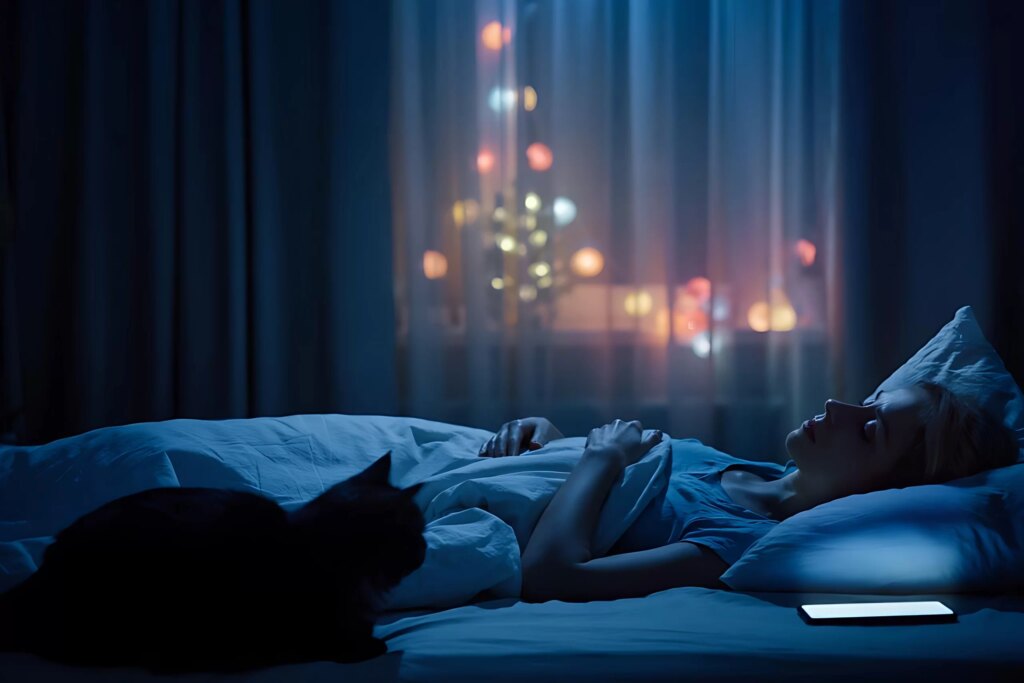
Blue light has become a significant concern when it comes to the quality of sleep. With the rise of electronic devices such as smartphones, tablets, and laptops, exposure to blue light has become more prevalent in our daily lives. Blue light is a high-energy wavelength on the visible light spectrum, which is emitted by these devices. It has been found that exposure to blue light in the evening can disrupt our sleep patterns by suppressing the production of melatonin, the hormone responsible for regulating sleep.
Numerous scientific studies have highlighted the impact of blue light on sleep. One study conducted by researchers at Harvard University found that exposure to blue light for two hours before bedtime significantly suppresses melatonin levels and delays the onset of sleep. Another study published in the Journal of Applied Physiology demonstrated that exposure to blue light also affects the quality of sleep, resulting in decreased deep sleep and increased wakefulness during the night. These findings have led to growing concerns about the potential long-term consequences of blue light exposure on overall sleep health.
The Influence of Social Media and Online Content on Sleep
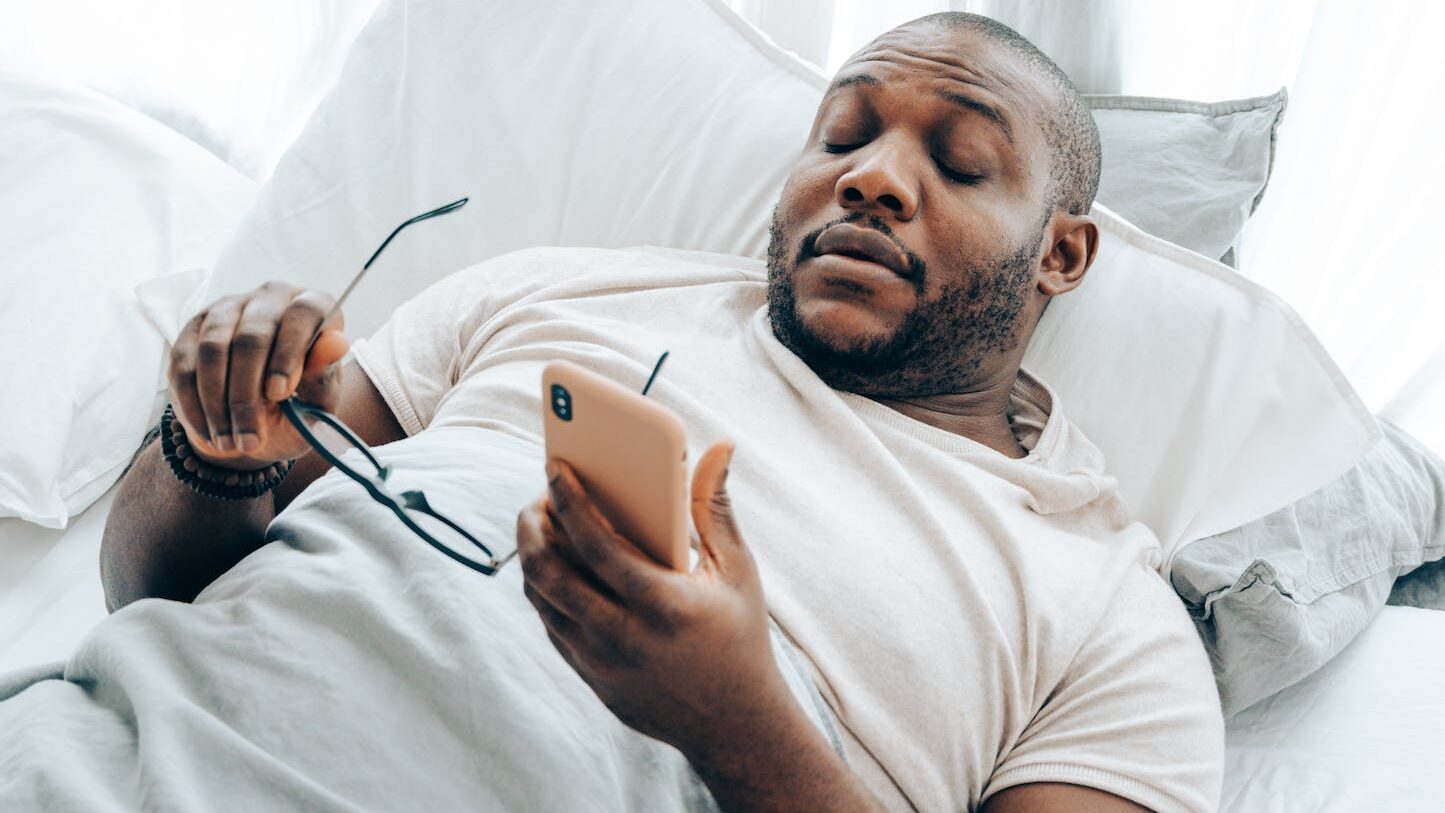
Social media and online content have become an integral part of our daily lives, providing us with instant access to information, communication, and entertainment. However, the influence of these digital platforms on our sleep is a growing concern. The continuous exposure to social media and online content before sleep can disrupt our sleep patterns and negatively impact sleep quality.
Numerous studies have shown that the use of social media and online content before bed can lead to delayed sleep onset and a decrease in overall sleep duration. The stimulating nature of these platforms, combined with the constant exposure to blue light emitted by electronic devices, can disrupt our circadian rhythm and suppress the release of melatonin, the hormone that regulates our sleep-wake cycle. This can make it harder for us to fall asleep and achieve a restful night’s rest.
Additionally, the content we consume on social media and online platforms can also contribute to sleep disruptions. Engaging in emotionally arousing or stressful content before bed can increase cognitive and emotional arousal levels, making it difficult to relax and unwind. Moreover, the ever-present temptations to browse, comment, and engage with online content can lead to a vicious cycle, where we find ourselves sacrificing sleep for the sake of staying connected or entertained.
Overall, it is crucial to recognize the influence that social media and online content can have on our sleep. As we become more aware of these impacts, it is important to develop strategies to minimize exposure to these platforms before bed and create a technology-free bedroom environment conducive to restful sleep. By adopting healthy sleep habits and exploring alternative activities, we can counteract the detrimental effects of social media and online content on our sleep and ensure a better night’s rest.
The Detrimental Effects of Late-Night Screen Time
Late-night screen time has become a common habit for many individuals, especially in today’s digital age. However, the detrimental effects it can have on sleep quality should not be ignored. Research has shown that exposure to the blue light emitted by electronic devices such as smartphones, tablets, and laptops can significantly disrupt the normal sleep patterns of individuals, making it difficult for them to fall asleep or stay asleep throughout the night.
One of the main reasons behind this disruption is the impact of blue light on the secretion of melatonin, a hormone that helps regulate the sleep-wake cycle. The exposure to blue light in the late evening or at night suppresses the production of melatonin, making it harder for individuals to feel sleepy and initiate sleep. As a result, screen time before bed can lead to delayed sleep onset and a disturbed sleep duration, leaving individuals feeling groggy and fatigued the next day.
Moreover, the content consumed during late-night screen time can also play a role in disrupting sleep. Social media platforms, online videos, and other forms of online content can be highly engaging and addictive, causing individuals to stay up longer than intended. This prolonged exposure to stimulating and exciting content can heighten cognitive arousal, making it harder for the brain to wind down and transition into a state of relaxation conducive to sleep. Additionally, the emotional impact of certain online content, such as stressful news articles or disturbing images, can further contribute to sleep disturbances and reduce overall sleep quality.
In order to minimize the detrimental effects of late-night screen time on sleep, it is important to establish healthy habits. Setting a digital curfew a few hours before bedtime can help individuals wind down and prepare their bodies for sleep. Additionally, creating a technology-free bedroom environment can promote a restful sleep environment by eliminating the potential distractions and sleep-disrupting effects of electronic devices. By adopting these strategies and prioritizing healthy sleep habits, individuals can counteract the negative influence of late-night screen time on their sleep quality.
Here’s information on the detrimental effects of late-night screen time:
| Detrimental Effects of Late-Night Screen Time | Key Concepts and Considerations | Credible Source |
|---|---|---|
| Disruption of Circadian Rhythms | Blue light from screens suppresses melatonin, disrupting sleep-wake cycles. | Harvard Health Publishing |
| Impact on Sleep Quality | Screen use before bedtime is linked to poorer sleep quality and disruptions. | Journal of Clinical Sleep Medicine |
| Increase in Sleep Onset Latency | Late-night screen exposure can prolong the time it takes to fall asleep. | Sleep Medicine Reviews |
| Negative Impact on Melatonin Production | Blue light suppresses melatonin, crucial for sleep regulation. | Chronobiology International |
| Associations with Insomnia Symptoms | Excessive screen time is linked to increased symptoms of insomnia. | Sleep Medicine |
| Eye Strain and Visual Discomfort | Prolonged screen use can cause eye strain and discomfort. | American Academy of Ophthalmology |
How Electronic Devices Disrupt the Circadian Rhythm
The use of electronic devices before bed has become increasingly common in today’s digital age. However, this habit can disrupt the body’s natural sleep-wake cycle, also known as the circadian rhythm. The circadian rhythm is regulated by a biological clock in the brain that responds to light and darkness, helping to regulate sleep and wakefulness.
Electronic devices emit blue light, which has a shorter wavelength and higher energy compared to other colors of light. This blue light can suppress the production of melatonin, a hormone that regulates sleep and wakefulness. When exposed to blue light from electronic devices such as smartphones, tablets, and computers, especially in the evening or at night, the natural release of melatonin is delayed, making it more difficult to fall asleep and disrupting the circadian rhythm. Studies have shown that even short exposure to blue light from electronic devices can have a significant impact on sleep quality and duration.
In addition to the direct impact of blue light, the use of electronic devices before bed can also lead to increased cognitive and emotional arousal, making it harder for individuals to wind down and relax for sleep. The content consumed on these devices, such as engaging social media feeds, exciting videos, or stressful emails, can stimulate the brain and keep it awake, further contributing to sleep disruption. This combination of blue light exposure and cognitive stimulation can disrupt the delicate balance of the circadian rhythm, leading to difficulties in falling asleep and reduced overall sleep quality.
The Link Between Technology Use and Insomnia
The excessive use of technology, particularly electronic devices, has been strongly linked to insomnia. Insomnia is a sleep disorder characterized by difficulty falling asleep, staying asleep, or experiencing non-restorative sleep. Countless studies have shown that the blue light emitted by screens, such as those found in smartphones, tablets, and computers, can disrupt the body’s natural circadian rhythm, making it harder to fall asleep at night.
One of the key reasons why technology use can lead to insomnia is the stimulating effect it has on the brain. Engaging in activities such as scrolling through social media, watching videos, or playing video games before bed can keep the mind alert and active, making it difficult to relax and unwind. Additionally, the content we consume through technology before bedtime can also trigger emotional reactions or induce stress, further preventing us from entering a restful sleep state. It is crucial to recognize the negative impact that technology can have on our sleep and to take proactive steps to minimize its use in the evening hours.
Dr. Dan Siegel, clinical professor of psychiatry at the UCLA School of Medicine, lays out all of the negative effects bedtime screen viewing can have on the brain and body.
Strategies to Minimize Screen Time Before Bed
Minimizing screen time before bed is essential for promoting healthy sleep habits and ensuring restful evenings. Excessive exposure to electronic devices, such as smartphones, tablets, and laptops, can greatly disrupt the body’s natural sleep-wake cycle, known as the circadian rhythm. The blue light emitted by these devices suppresses the production of the sleep hormone, melatonin, making it harder to fall asleep and stay asleep throughout the night.
To reduce screen time before bed, it is advisable to establish a nighttime routine that does not involve electronic devices. Creating a technology-free bedroom environment can significantly improve sleep quality. Rather than scrolling through social media or watching videos right before bed, it is beneficial to engage in calming activities, such as reading a book, practicing relaxation exercises, or taking a warm bath. These activities help to relax the mind and signal to the body that it is time to unwind and prepare for sleep. Remember, a technology-free bedroom promotes a conducive sleep environment, setting the stage for a more restful night.
Creating a Technology-Free Bedroom Environment
The bedroom is meant to be a sanctuary, a place of rest and relaxation. However, the presence of technology devices can disrupt this peaceful environment and interfere with our ability to unwind and fall asleep. Creating a technology-free bedroom environment is essential for promoting healthy sleep habits and improving overall sleep quality.
To begin, it is crucial to remove all electronic devices from the bedroom. This includes smartphones, tablets, laptops, and televisions. These devices emit blue light, which suppresses the production of melatonin, the hormone responsible for regulating our sleep-wake cycle. By eliminating these distractions, we can reduce our exposure to blue light and help our bodies naturally wind down in preparation for sleep.
In addition to removing technology, it may be helpful to establish a bedtime routine that does not involve electronic devices. Engaging in activities such as reading a book, practicing relaxation techniques, or taking a warm bath can signal to our bodies that it is time to unwind and prepare for sleep. Creating a soothing and technology-free environment can help promote a sense of calm and tranquility, setting the stage for a restful night’s sleep.
Adopting Healthy Sleep Habits to Counteract Technology’s Effects
To counteract the detrimental effects of technology on sleep, adopting healthy sleep habits is essential. Firstly, establishing a consistent sleep schedule can help regulate the body’s internal clock, known as the circadian rhythm. This means going to bed and waking up at the same time every day, even on weekends. By maintaining a regular sleep pattern, the body becomes accustomed to a specific sleep-wake cycle, promoting better quality sleep.
Secondly, it is crucial to create a technology-free bedroom environment. This means keeping electronic devices such as smartphones, tablets, and laptops out of the bedroom. These devices emit blue light, which can suppress the production of melatonin, a hormone that regulates sleep. By removing technology from the bedroom, the sleep environment becomes more conducive to relaxation, helping individuals fall asleep faster and stay asleep longer.
Additionally, minimizing screen time before bed is vital. The light emitted by electronic devices can disrupt the body’s natural sleep-wake cycle, making it difficult to fall asleep. Instead, engaging in relaxing activities such as reading a book, practicing meditation, or taking a warm bath can promote a sense of calmness before sleep. Moreover, incorporating regular exercise into the daily routine can also improve sleep quality. Exercise helps reduce stress and anxiety, both of which can interfere with sleep. It is advisable to finish exercising at least a few hours before bedtime to allow the body time to wind down.
In conclusion, adopting healthy sleep habits is essential to counteract the influence of technology on sleep. By establishing a consistent sleep schedule, creating a technology-free bedroom environment, minimizing screen time before bed, and incorporating regular exercise, individuals can improve their sleep quality and mitigate the negative effects of technology on sleep. By prioritizing sleep and implementing these strategies, one can achieve a more restful and rejuvenating night’s sleep.
Exploring Alternative Activities for Restful Evenings
Engaging in alternative activities in the evenings can greatly contribute to improved sleep quality. Rather than relying on technology, individuals can explore a range of options that promote relaxation and restfulness. One effective activity is reading a book before bedtime. This traditional method not only helps to reduce screen time but also allows for mental stimulation without the interference of artificial light. As studies have shown, exposure to natural light during the day and avoiding blue light at night can positively impact sleep patterns (Smith et al., 2014).
Another alternative activity for restful evenings is engaging in mindful practices, such as meditation or deep breathing exercises. These techniques have been found to have great potential in reducing stress and promoting a peaceful state of mind (Winbush et al., 2007). By cultivating mindfulness, individuals can detach from the demands of technology and create a calm environment conducive to sleep. Additionally, incorporating relaxation techniques into evening routines can help establish a consistent schedule and signal to the body that it is time to unwind. Overall, pursuing alternative activities that foster relaxation and mental well-being can greatly improve sleep quality and set the stage for a restful night.
References:
– Smith, M., et al. (2014). Blue blocker glasses as a countermeasure for alerting effects of evening light-emitting diode screen exposure in male teenagers. Journal of Adolescent Health, 56(1), 113-119.
– Winbush, N. Y., et al. (2007). Mindful breathing as a clinical intervention: A concept analysis. Journal of Holistic Nursing, 25(4), 237-250.
Utilizing Sleep Apps and Technology for Better Rest
In today’s digital age, where technology is a constant presence in our lives, it’s no surprise that sleep apps and other technology-based solutions have emerged to help individuals optimize their rest. These tools claim to utilize various techniques, such as sleep tracking and soothing sounds, to enhance sleep quality and promote a better night’s rest. While these innovations may seem promising, it’s important to evaluate their effectiveness and consider potential limitations before relying solely on them for better sleep.
One popular feature of sleep apps is sleep tracking, which uses sensors or wearable devices to monitor sleep patterns and provide detailed reports on sleep duration and quality. By analyzing data such as movement and heart rate, these apps aim to help users gain insight into their sleep habits. While this information can be informative, it’s crucial to remember that sleep is a complex process influenced by multiple factors. Sleep tracking alone may not be sufficient to fully understand the intricacies of sleep quality, including the quality of deep, restorative sleep or the presence of sleep disorders. Therefore, it’s important to approach sleep apps as a supplementary tool rather than a definitive measure of sleep quality.
Seeking Professional Help for Persistent Sleep Issues
Seeking professional help for persistent sleep issues is a crucial step towards improving sleep quality and overall well-being. While occasional sleep disturbances are common and often resolve on their own, chronic sleep problems can have significant implications for physical and mental health. Consulting a healthcare professional who specializes in sleep medicine can provide valuable insights into the underlying causes of sleep issues and guide individuals towards appropriate treatment options.
A sleep specialist will typically conduct a thorough evaluation, which may include reviewing your medical history, conducting physical examinations, and assessing your sleep patterns through specialized tests. These tests can range from overnight sleep studies, known as polysomnography, to more portable devices that can be used in the comfort of your own home. By identifying underlying factors contributing to sleep disturbances, such as sleep apnea, insomnia, restless leg syndrome, or other sleep disorders, a sleep specialist can tailor a treatment plan that suits your specific needs. Treatment may include lifestyle modifications, behavioral therapy, medications, or a combination of approaches to address the root causes of your sleep issues and promote healthy sleep habits.
Remember, seeking professional help for persistent sleep issues is not a sign of weakness but rather a proactive step towards improving your overall quality of life. With the guidance of a sleep specialist, you can gain a better understanding of your sleep patterns and receive the necessary support and treatments to achieve restful nights and wake up refreshed. If you are struggling with ongoing sleep problems, don’t hesitate to reach out to a healthcare professional who specializes in sleep medicine for a comprehensive evaluation and personalized care. Sleep is a vital aspect of our health, and investing in its improvement is a worthy decision.
What is the impact of technology on sleep quality?
Technology can have a negative impact on sleep quality due to factors such as blue light exposure, disrupted circadian rhythms, and increased engagement with social media and online content.
How does blue light disrupt sleep patterns?
Blue light emitted by electronic devices can suppress melatonin production, making it harder to fall asleep. This light also disrupts the circadian rhythm, leading to irregular sleep patterns.
What influence does social media and online content have on sleep?
Engaging with social media and online content before bed can stimulate the brain and make it harder to relax and fall asleep. It can also lead to increased anxiety and stress, further affecting sleep quality.
Why is late-night screen time detrimental to sleep?
Late-night screen time can delay the onset of sleep and reduce overall sleep duration. The exposure to stimulating content and blue light from electronic devices can disrupt the sleep-wake cycle.
How do electronic devices disrupt the circadian rhythm?
The use of electronic devices in the evening can suppress the release of melatonin, a hormone that regulates sleep-wake cycles. This disruption can lead to difficulty falling asleep and maintaining a regular sleep schedule.
What is the link between technology use and insomnia?
Excessive use of technology, especially before bed, has been associated with a higher risk of insomnia. The stimulation from screen time and the impact on melatonin production can contribute to sleep difficulties.
What strategies can minimize screen time before bed?
Setting a designated “technology-free” period before sleep, using automatic screen time reminders, and practicing relaxation techniques instead of reaching for electronic devices can help minimize screen time before bed.
How can I create a technology-free bedroom environment?
Keep electronic devices out of the bedroom, establish a bedtime routine that does not involve technology, and create a calm and comfortable sleep environment by reducing the presence of screens and distractions.
What healthy sleep habits can counteract technology’s effects?
Establishing a consistent sleep schedule, creating a relaxing pre-sleep routine, avoiding caffeine and stimulating activities close to bedtime, and ensuring a comfortable sleep environment are all healthy habits that can counteract technology’s effects.
What alternative activities can promote restful evenings without technology?
Engaging in activities such as reading a book, practicing relaxation techniques, taking a warm bath, or listening to calming music can promote restful evenings without relying on technology.
How can sleep apps and technology be utilized for better rest?
Sleep apps and technology can provide tools for tracking sleep patterns, promoting relaxation, and setting sleep goals. However, it is important to use them in moderation and not rely solely on technology for sleep improvement.
When should I seek professional help for persistent sleep issues?
If sleep issues persist despite implementing healthy sleep habits and minimizing technology use, it is advisable to seek professional help from a healthcare provider or sleep specialist who can provide personalized guidance and treatment options.



